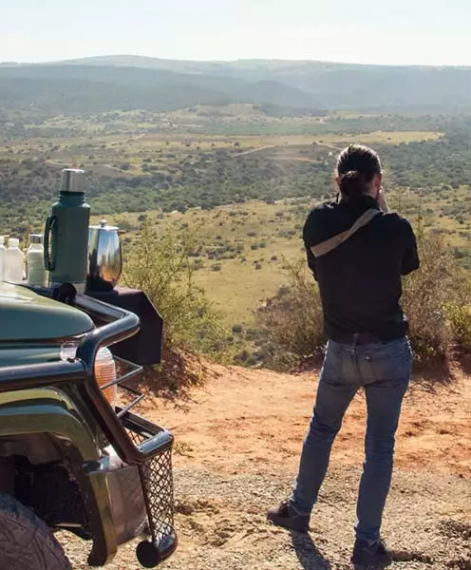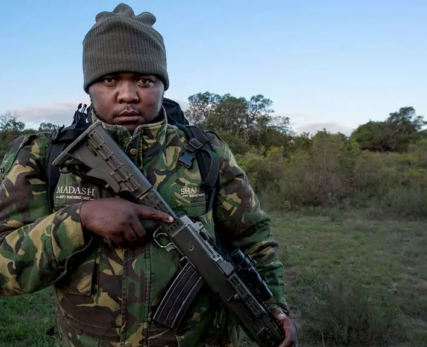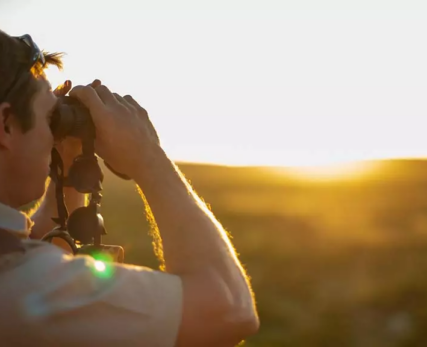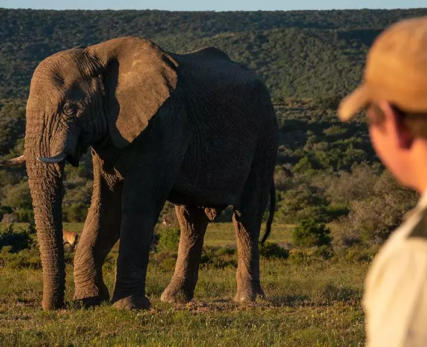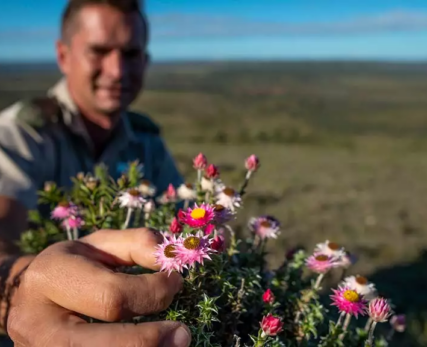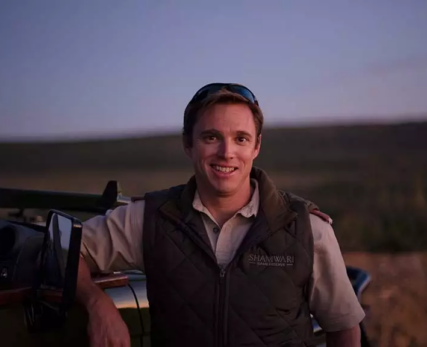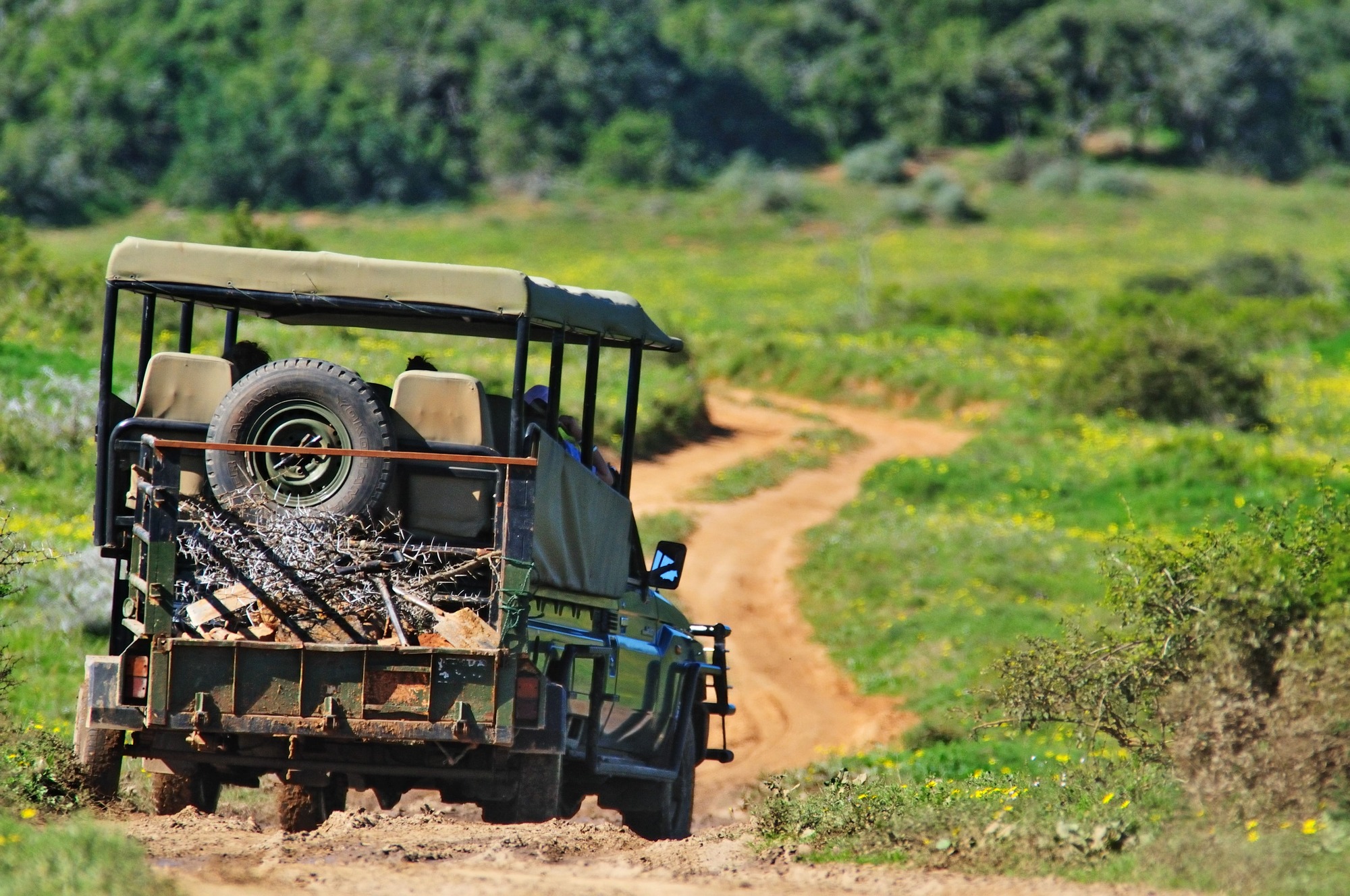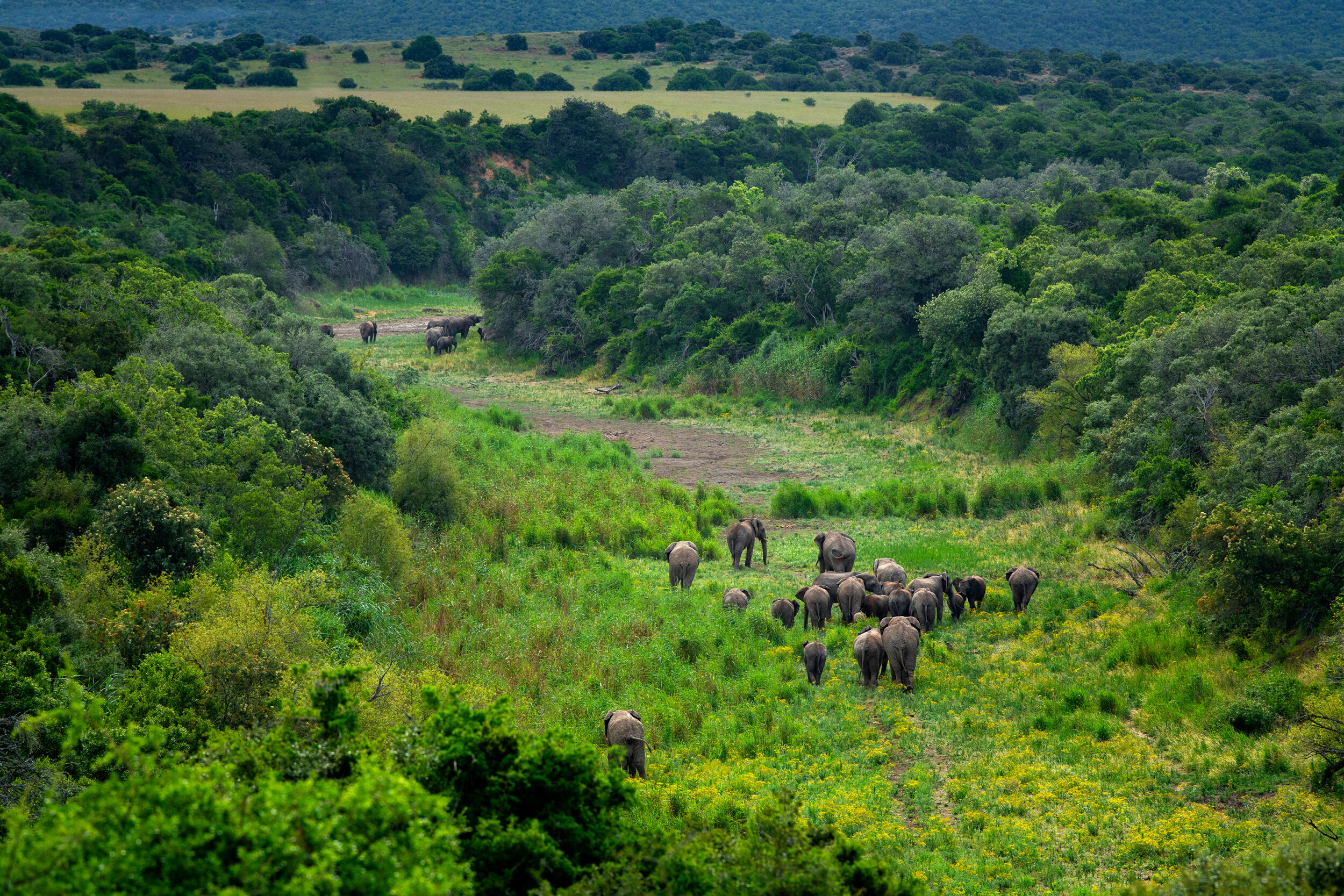Although they may initially seem similar, a game ranger and a field guide are two diverse occupations. Often referred to as guardians of nature, game rangers and field guides spend their days in the African bushveld working in close proximity with wildlife. Read on to learn more.
The Difference Between a Game Ranger and Field Guide
A game ranger is primarily responsible for the management of wildlife reserves or national parks, as well as ensuring the safety of protected areas under their management. Their duties include ensuring the continued well-being of wildlife, population management, game capture and introductions, controlled burning, alien vegetation management, high profile animal monitoring, fence and infrastructure management, environmental education, as well as important administrative duties. Essentially, protection of the animals and land.
In various national parks, game rangers also form part of anti-poaching units, protect animals and act as boots on the ground, ensuring the success of conservation efforts. At various private game reserves, such as Shamwari, there is an anti-poaching team dedicated to protecting the land and animals within the area.
A field guide primarily works with tourists in a protected area, wildlife reserve or national park. Guides share their knowledge with guests regarding regional fauna and flora in their natural habitats. Essentially, they act as environmental interpreters, helping to breed an appreciation for nature. They promote conservation and environmental protection, taking guests on guided experiences either in a vehicle or on foot.
How Times Have Changed in the Tourism Industry
Many years ago, when the national parks in South Africa were created, they were run and managed by game rangers. The parks mainly focused on self-drives, so game rangers didn’t need to accompany guests. When the parks started offering game drives and bush walks, game rangers got involved too. There was no official qualification for guiding and most rangers had become knowledgeable about fauna and flora in their region on their own.
The need for specialised guides started when the tourism industry began to gain traction and game rangers were needed to maintain their primary responsibility of managing the parks. This was when the role of the field guide was introduced, to specifically cater to the needs of guests. Private game reserves and lodges started opening their doors to cater to the demands of both local and international tourists wishing to explore Africa.
As a result of the influx of tourists in the hospitality industry, a need started to exist for an accredited field guiding industry board or standards and ethics committee. Thus the Field Guides Association of Southern Africa (FGASA) was formed. A national guiding qualification was developed soon thereafter.
Today, game rangers form part of the management of a reserve and field guides are managed by a head guide.
How to Become a Game Ranger
Game rangers are also referred to as conservation officers. First and foremost, a passion for wildlife and nature is required. To become a game ranger, you need to attain qualification at a tertiary education institution in South Africa. Recommended qualifications to help get your foot in the door for a career in game management would be:
- A national diploma in nature conservation
- A national diploma in game ranch management
- A degree with natural sciences as a major
These qualifications are generally three years long and consist of two years of theory and one year of practical work. There are also other short course options out there, so be sure to do some research before choosing the best option for you!
Tertiary Institutions that Offer Game Ranger Qualifications
There are several accredited tertiary institutions that offer courses for those looking to pursue a game ranger career:
- Cape Peninsula University of Technology
- University of Cape Town
- University of the Western Cape
- University of South Africa (UNISA)
- Southern African Wildlife College
- Tshwane University of Technology
- University of Stellenbosch
- College of African Wildlife Management
How to Become a Field Ranger, Anti-Poacher and Protector of Wildlife
Rangers or protectors of wildlife are the foot soldiers, protecting all species within a game reserve or national park. These unsung heroes work tirelessly on the front line to protect wildlife in designated areas. It takes a physically fit and strong individual to handle the nature of this job. Rangers are often exposed to the elements and work in harsh conditions to enforce the law. In most cases, they are trained to carry firearms.
It is recommended that you choose a course or qualification that equips you with the skills and knowledge to protect yourself, as well as the wildlife. For this line of work, it is imperative that you keep abreast of the latest tactics and technologies being used in the field.
